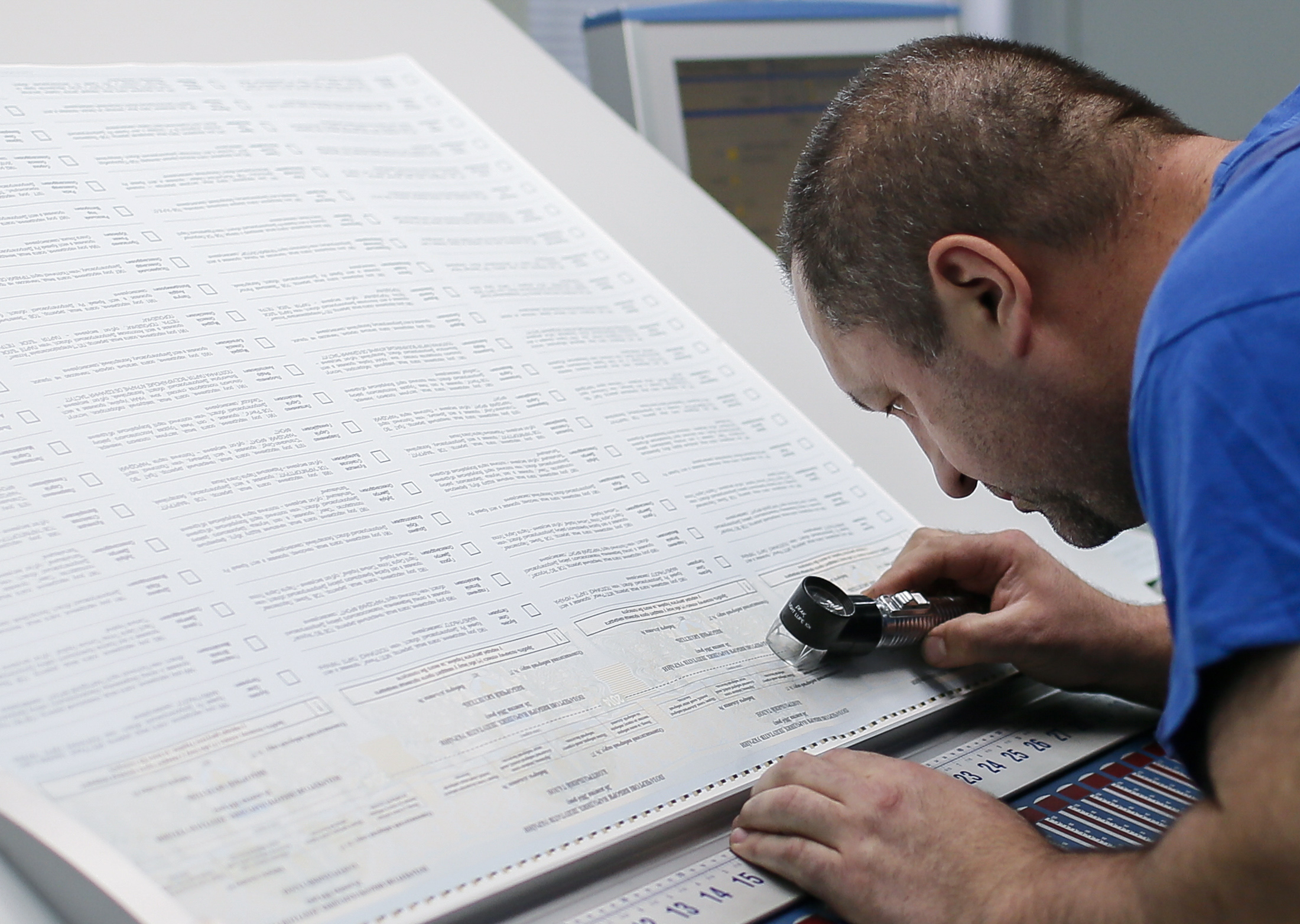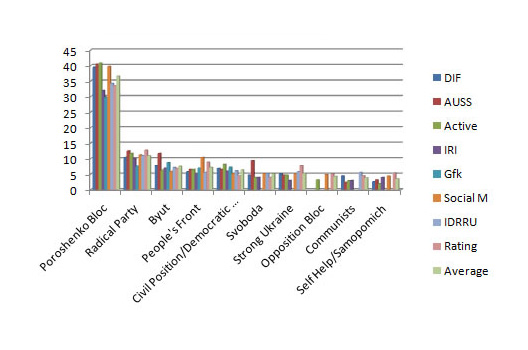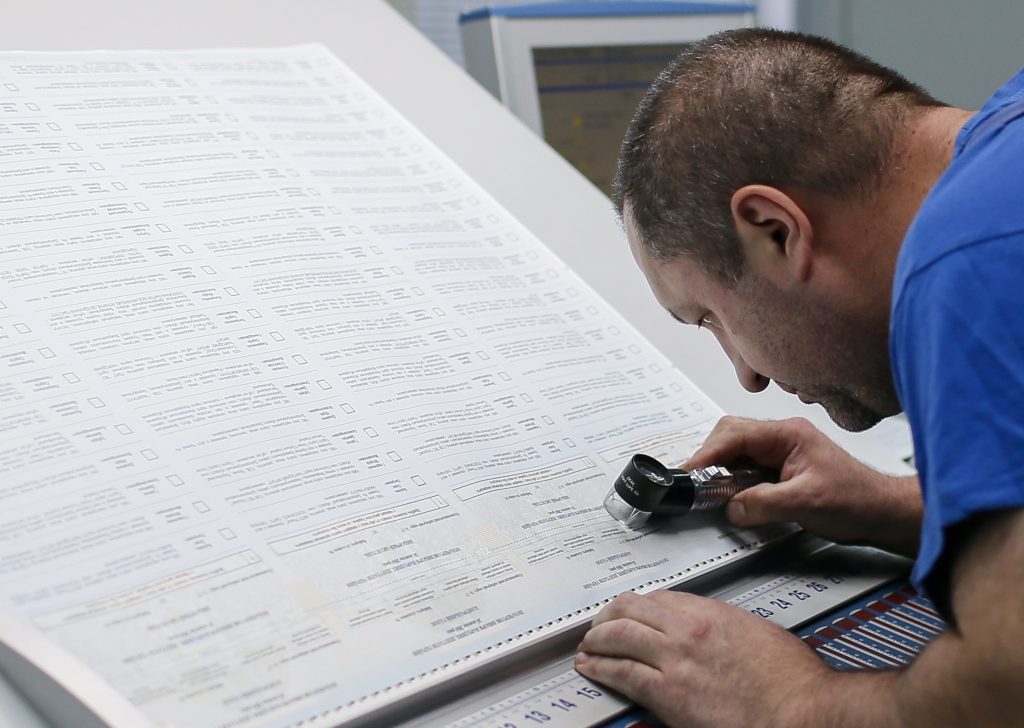
Poroshenko’s Party Leads; Yatsenyuk Improves Chance of Remaining Prime Minister
On Sunday, Ukrainians will elect their first parliament since the Maidan revolution and the Russian invasions of Crimea and Donbas. Kyiv-based political analyst Brian Mefford, now a nonresident senior fellow of the Atlantic Council, analyzes Ukrainian politics and elections on his website’s blog. Mefford’s analysis will feature on New Atlanticist and the Atlantic Council’s UkraineAlert newsletter, beginning with his reading this week of the prospects for Sunday’s vote and Ukraine’s next government.
Mefford’s key observations this week are these:
- Poroshenko still leads. While the bloc of President Petro Poroshenko has slipped in public opinion polls (now getting support from about 37 percent of voters, down from about 40 percent), it continues to dominate the field.
- Yatsenyuk is likely to remain prime minister. Despite rumors in Kyiv of tensions between Poroshenko and Prime Minister Arseniy Yatsenyuk, a political deal between their parties increases the chances that Yatsenyuk will keep his position at the head of the new parliament. While Poroshenko “would likely prefer” Volodymyr Hroisman—the former mayor of Poroshenko’s hometown, Vinnytsia—as prime minister, “the reality for now is that the Ukrainian people and international donor community still largely support Yatsenyuk.”
- Parliament could have a record number of parties, but will be staunchly pro-European. Shifts among the parties in the latest polls suggest that as many as nine parties, a record, will surpass the threshold of 5 percent of the national vote to win seats in parliament. (Six parties entered parliament following the 2002 election.) Ukraine’s “eastern electorate,” which traditionally has formed the base for Ukrainian political leaders who resist integration with Europe has been consolidating behind two or three parties (including the Communists) that may cross the threshold to enter parliament. Still, Mefford’s bottom line: “it is safe to reiterate our projection that the new parliament will be the most pro-European in Ukraine’s history.”
Read Mefford’s big-picture analysis of the pre-election picture below. You can find his full analysis, including snapshots of 22 key races, on his Ukrainian politics blog.
• Poll of Polls: There is interesting movement since last week in the “poll of polls” average. Poroshenko bloc, the Radical Party and Civil Position are in verifiable decline and may have peaked too early in the campaign. In four of the last five polls, the Poroshenko bloc has seen their numbers closer to 30 percent rather than 40 percent. They now average 36.6 percent which is down 10 percent from 39.7 percent last week. The Radical Party continues to slip too and now averages 10.9 percent which is down two points from last week. While the Poroshenko Bloc and Radical Party can afford to lose a few points, Hritsenko’s Civil Position cannot. They have slid to 6.4 percent, which is down 1.3 percent from last week. One recent poll by the respected Rating Group company even puts them below 5 percent for the first time in this campaign. Byut has stabilized at 7.6 percent (up 0.3 percent) while National Front has pulled within the margin of error to their former colleagues at 7.2 percent. This rise of 0.9 percent is the second increase in two weeks and indicates that National Front is clearly gaining momentum. Meanwhile Svoboda remains barely above the barrier at 5.1 percent. The other big mover in the pro-European camp is Samopomich which is now averaging 3.5 percent (up 1.1 percent from last week) and the same poll from Rating Group even puts them crossing the barrier at 5.4 percent. If Samopomich’s momentum continues like it is now, then expect them also to win seats on the proportional ballot. That would mean that nine parties would cross the barrier to win seats in parliament – a new record for Ukraine (previous record was six parties in 2002).

Ukraine’s “eastern electorate” also began consolidating behind Strong Ukraine, the Opposition Bloc and Communists. Strong Ukraine gained almost a point to average 5.3 percent now. The big mover though was the Opposition Bloc which doubled their average to 4.3 percent and has strong momentum to get past the 5 percent barrier at this point. Clearly the former Regions Party electorate is identifying with the Opposition Bloc and their support is likely to continue to rise in the final nine days. Interestingly, even the Communists are on the uptick moving to 3.8 percent from 3.1 percent last week. Word on the street is that the court case to ban them as a political party for supporting separatism is now dead. Apparently that was one of Putin’s demands in the Minsk talks. As a result, the party is working harder to mobilize their electorate to pass the 5 percent barrier. The Communists received 13 percent in 2012 so achieving 5 percent this time is in the realm of possibility. All in all, the “eastern electorate” gained 3.8 percent since last week while the pro-European electorate lost 4.2 percent. We will see soon if those trends continue on Election Day but for now, it is safe to reiterate our projection that the new parliament will be the most pro-European in Ukraine’s history.
• Who will be Poroshenko’s Coalition Partner in Parliament? – if there was any doubt about what the parliamentary majority and governing coalition will look like after the election, the announcement last Tuesday that Poroshenko Bloc and National Front had agreed to support a single candidate in twenty districts should eliminate it. The two blocs negotiated and withdrew the weaker candidates between the two in twenty single mandate districts. This gives the remaining candidate in those districts a better chance of victory because votes will not be split between the two bloc’s candidates. This move also points to an increased possibility of Yatsenyuk keeping his job as Prime Minister when the new Parliament votes next month. Rumors have abounded for weeks of a rift between Poroshenko and Yatsenyuk. While eventually Poroshenko would likely prefer his former hometown mayor Hroisman as the Premier, the reality for now is that the Ukrainian people and international donor community still largely support Yatsenyuk. Yatsenyuk maintains a 45/48 percent satisfied/dissatisfied rating as premier while Poroshenko stands at 48/44 percent. All other ministers in the government have substantially higher negatives than positives according to the latest IRI poll.
• Restructured Ukrainian Security Portfolio – following the (mostly one sided) cease fire in the Donbass, Poroshenko has moved to put his team of security officials in charge. These moves include replacing Governors in Donetsk and Luhansk with individuals who have a law enforcement/intelligence background (i.e. Oleksandr Kihtenko in Donetsk and Gennadiy Moskal in Luhansk). Former SBU Chief under Kuchma, Ihor Smeshko was appointed to head a special Committee on Intelligence Issues. Defense Minister Valeriy Heletei was reshuffled back to Head of the State Guard (Secret Service) and National Guard Commander Stefan Poltarak was made the new Defense Minister. Since the beginning of the year, Ukraine’s Defense Minister job has been a revolving door as the names of Lebedyev, Zamana, Tenyukh, Koval and Heletei have all occupied the post. In fact, Defense Ministers in the new government (post-Yanukovych) have averaged just sixty days on the job before being replaced. Heletei holds the current record of 105 days. There is also strong speculation that Poroshenko will make changes after the election to replace Nalyvychenko as the Head of the SBU with his own person (perhaps Smeshko?) and reshuffle Nalyvychenko to Head the National Security and Defense Council (NSDC). Nalyvychenko has been a rock of stability in the frequently changing security structures for the new Ukrainian government. His record of performance in fighting separatism, terrorism and assisting the war effort will be difficult to duplicate.
Brian Mefford, a political and business consultant in Kyiv, is a nonresident senior fellow at the Dinu Patriciu Eurasia Center of the Atlantic Council.
Image: A worker at a Kyiv printing plant inspects paper ballots for Sunday’s parliamentary election. (Reuters/Gleb Garanich)
